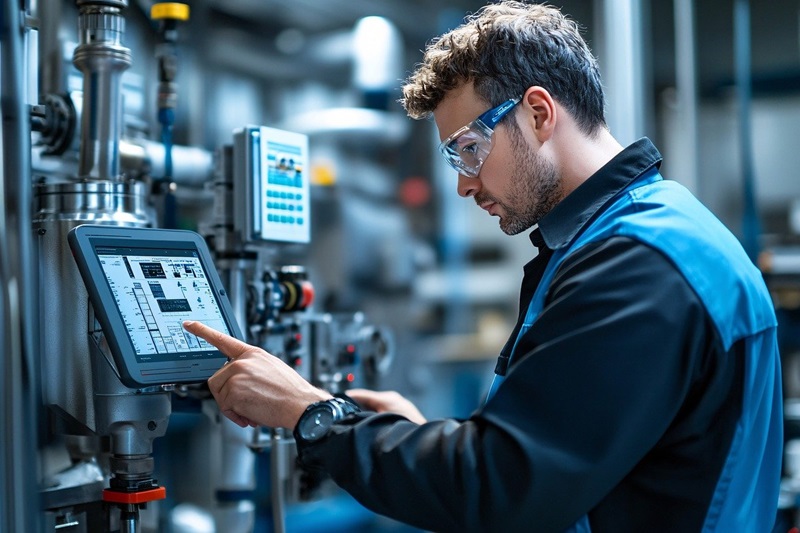Manufacturing companies face unique challenges when expanding into international markets. One of the most critical yet often overlooked aspects of this expansion is effective communication. From technical manuals and safety guidelines to contracts and product specifications, clear and accurate translations are essential. However, standard translation services simply won’t do. Manufacturing companies need specialized translation services tailored to their industry’s complex and technical nature. This article explores why specialized translation services are indispensable for manufacturers and how they drive efficiency, safety, and success in global markets.
The Complex Nature of Manufacturing Content
Manufacturing processes involve intricate systems, technical jargon, and highly specific documentation. Whether it’s a user manual for an industrial machine, safety data sheets, or quality assurance protocols, accuracy is non-negotiable. Even a small mistranslation can result in serious consequences, such as equipment failure, production delays, or safety hazards.
Example: Precision in Technical Manuals
Imagine a German machinery manufacturer exporting its products to China. The user manual contains step-by-step instructions for assembling and operating complex machinery. A standard translation might misinterpret a technical term, leading to improper installation. The consequences could range from machine damage to workplace accidents. Specialized translation ensures that technical content is accurately translated by linguists familiar with the industry and its terminology.
Specialized translators understand:
- Industry-specific terminology (e.g., torque specifications, tensile strength, CAD references)
- The context of manufacturing operations
- Compliance with local regulations and standards
Ensuring Compliance with Global Standards
Manufacturing companies must adhere to international safety and quality standards, such as ISO certifications, CE markings, and OSHA regulations. These standards often require precise documentation in the target market’s language to ensure compliance.
Example: Compliance in Safety Data Sheets
A U.S.-based chemical manufacturer ships products to the European Union. The EU requires Safety Data Sheets (SDS) in multiple languages, adhering to REACH regulations. A generalized translation might miss critical safety terms or instructions, leading to non-compliance and hefty fines. Specialized translators ensure the SDS meets regulatory requirements, preventing legal issues and promoting safety.
By partnering with specialized translation providers, manufacturers can guarantee:
- Consistent compliance across markets
- Accurate terminology aligned with industry standards
- Proper documentation for audits and inspections
Streamlining Global Supply Chains
Manufacturing relies heavily on global supply chains involving multiple stakeholders across countries. Effective communication between suppliers, engineers, and production teams is essential to maintain efficiency and avoid costly errors.
Example: Streamlining a Global Production Process
Consider an automotive company sourcing components from suppliers in Japan, Germany, and Mexico. Design schematics, quality control reports, and production schedules must be shared across teams in different languages. A specialized translation service ensures consistency and accuracy, enabling seamless collaboration. Any errors in translating specifications could result in defective parts, production delays, or increased costs.
Specialized translation services facilitate:
- Accurate communication between international teams
- Faster turnaround for critical documentation
- Reduced risk of misunderstandings and errors
Enhancing Product Usability and Customer Satisfaction
For manufacturers exporting goods to global markets, customer-facing documents like user manuals, assembly guides, and troubleshooting instructions play a vital role in product usability and satisfaction. Poorly translated instructions can frustrate customers, damage brand reputation, and increase support requests.
Example: Enhancing User Experience
A Canadian company manufactures advanced home appliances for the French market. The installation guide—poorly translated by a non-specialist—leads to customer confusion and negative reviews. By using specialized translators familiar with the technical nuances of home appliances, the guide becomes clear and user-friendly, enhancing the product’s market success.
Protecting Intellectual Property
Manufacturers invest significant resources into research and development, creating proprietary technologies, designs, and processes. When expanding internationally, it is essential to protect this intellectual property through accurate translations of patents, legal contracts, and design documents.
Example: Securing Patent Documentation
A Swiss manufacturer develops a groundbreaking machine part and files a patent application in multiple countries. A mistranslation in the patent documentation could lead to legal vulnerabilities or challenges in securing patent rights. Specialized translation ensures that legal and technical details are accurately preserved, safeguarding intellectual property.
Localization for Manufacturing Markets
Localization goes beyond direct translation. It adapts content to the cultural and technical expectations of target markets. Specialized translation services localize product descriptions, marketing materials, and software interfaces to align with regional preferences.
Example: Software Localization for Machinery
A manufacturer of industrial robots exports to South America. The user interface (UI) of the control software must be translated into Spanish while considering regional terminology and user habits. Localization ensures the software is user-friendly, reducing training time and improving operational efficiency.
Why Standard Translation Services Fall Short
General translation providers often lack the technical knowledge and industry expertise required for manufacturing content. Specialized translators, on the other hand, combine linguistic skills with:
- Industry-specific training
- Knowledge of technical standards and regulations
- Familiarity with manufacturing workflows and tools
Additionally, specialized translation providers use advanced tools such as Translation Memory (TM) and terminology management systems. These tools ensure consistency across large volumes of content while reducing costs and turnaround times.
Choosing the Right Specialized Translation Partner
To reap the benefits of specialized translation, manufacturing companies must select the right partner. Key factors to consider include:
- Industry Expertise: Proven experience in manufacturing translations
- Quality Assurance: Rigorous processes to ensure accuracy
- Tools and Technology: Use of CAT tools, glossaries, and translation management systems
- Compliance Knowledge: Familiarity with local and international regulations
At TrueLanguage, we understand the complexities of manufacturing content. Our specialized linguists combine technical expertise with linguistic precision to deliver translations that ensure compliance, improve efficiency, and support global success.
Summarizing
For manufacturing companies, specialized translation services are not optional – they are a necessity. Whether it’s ensuring safety, maintaining compliance, protecting intellectual property, or enhancing customer satisfaction, accurate and industry-specific translations play a vital role in global operations. By partnering with a specialized translation provider like TrueLanguage, manufacturers can overcome language barriers, streamline processes, and thrive in international markets.
Contact TrueLanguage today to learn how our specialized translation services can help your manufacturing business succeed in global markets.


